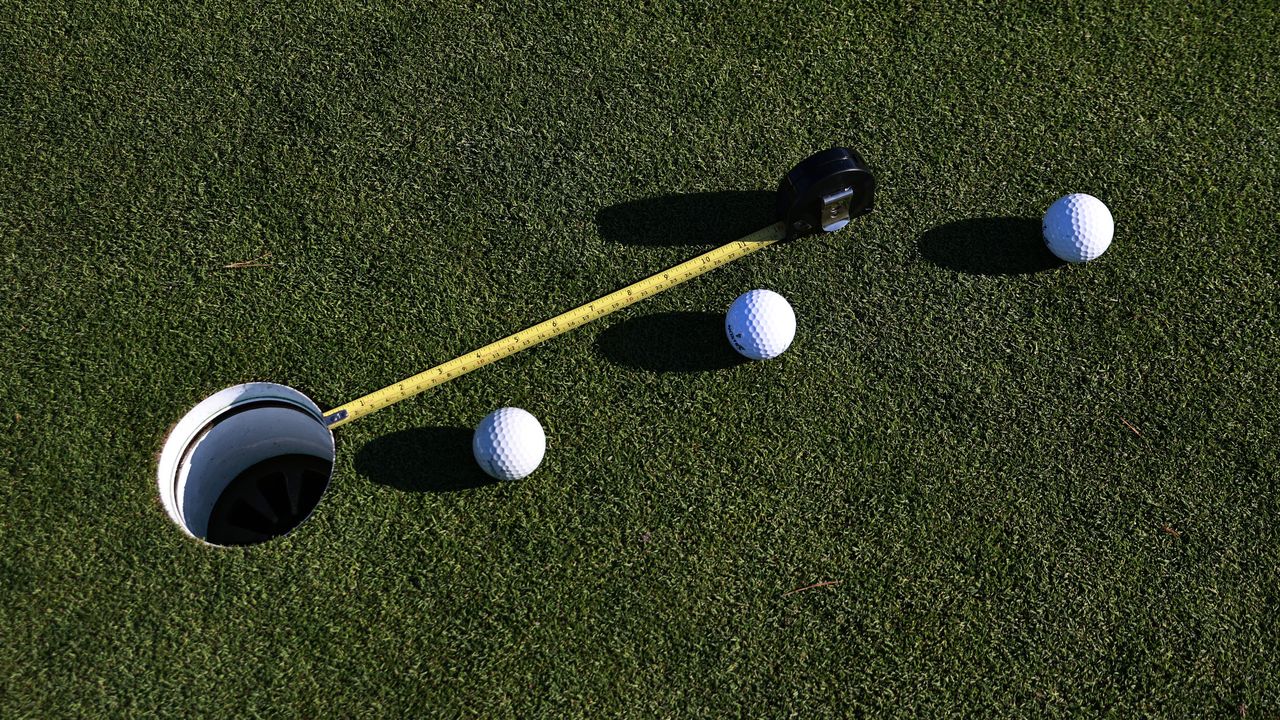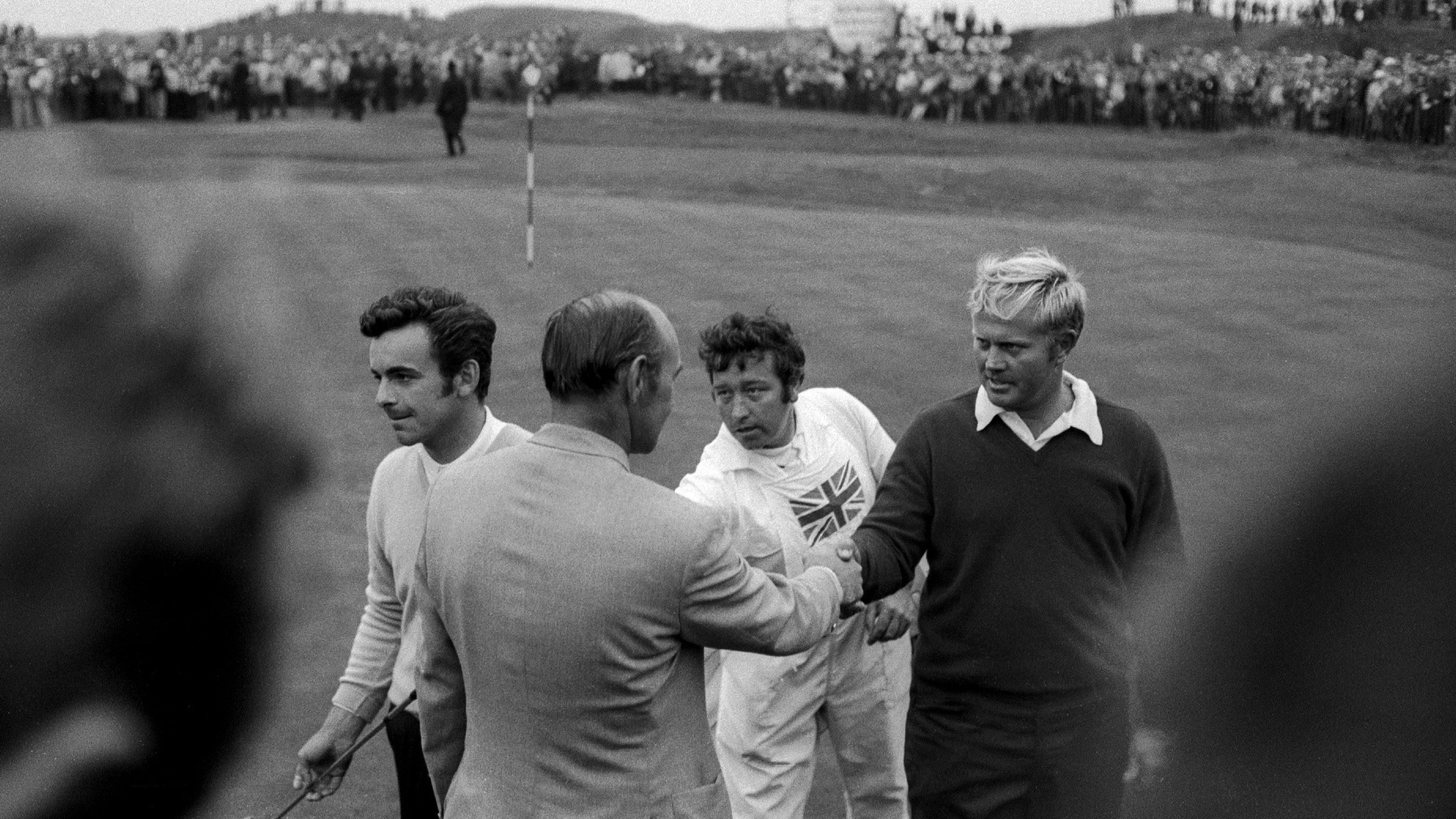
A gimme is a short putt conceded by an opponent. It is still counted as a shot, but the player does not actually play it. Its name comes from a corruption of “give me” as in “will you give me that shot?” asked by a player of their opponent.
There will be plenty of gimmes this week at the Ryder Cup as Europe bids to win for the first time on American soil since 2012 at Bethpage Black.
In the video below, rules guru Jezz Ellwood looks at when gimmes can and cannot be used under the rules of golf.
Logically perhaps it should be known as a giyya. For it is something an opponent gives you rather than something you should be asking for.
It is an also an act of sportsmanship and also justified as speeding up play by stopping players having to hole out from short distances.
A gimme can be given over any distance or none at all. There is no requirement for someone to give a gimme. Indeed, other than in match play, it is incorrect to do so.
Technically gimmes should not be given in strokeplay. But they can be given in strokeplay if all players agree.
In club strokeplay competitions they will not be, but often in a more social competitions, and even in some charity or society days, they may be conceded.
But they should not be, technically, if the player receiving the gimme is competing not just against the players in his group but all the others in the field and these other players are in no position to give their consent.
Indeed given how often gimmes occur in matchplay, the Ryder Cup is often where they can be seen in the professional game.
Perhaps the most famous gimme was the one Jack Nicklaus gave Tony Jacklin on the final hole of the final game of the 1969 Ryder Cup match. The concession of the 2ft putt resulted in the match being drawn and America retaining the cup.
If the putt had been played and missed, Nicklaus’ USA side would have won the match as well as the cup. Here, Fergus Bisset debates whether it was a great act of sportsmanship or a crazy thing to do.
“I don't believe you would have missed that, but I’d never give you the opportunity in these circumstances,” Nicklaus told Jacklin as he picked up Jacklin’s marker and handed it to him.
“Tony had been the first golfing hero that England had had in a long time. If he missed that putt, the British press would’ve barbecued him,” Nicklaus has said of the concession. “I didn’t want to put him in that position. He was a good friend.”

Gimmes can also cause controversy too as shown by the 2015 Solheim Cup.
Norwegian Suzann Pettersen was playing in a four-ball with Charley Hull when American opponent Alison Lee picked her ball up thinking the Europeans had conceded, or given, her the putt.
Pettersen insisted she hadn't conceded, despite walking away from the green with Hull, resulting in the Americans losing the hole on the 17th.

Should they be scrapped?
My colleague Joe Ferguson wrote a piece as part of our 'unpopular golf opinions' series about how gimmes should be scrapped in professional and elite amateur events (not during your casual weekend round with friends).
"While I fully understand the concept of conceding a putt that you feel is essentially ‘unmissable’ by your opponent has traditionally been seen as a noble and sporting gesture highlighting the 'gentlemanly' side of the game, in recent years I feel things have taken a sinister turn.
In every Ryder, Presidents and Solheim Cup I can remember over the past decade, I have seen repeated petulant incidents of disgruntled players giving sly looks and even placing their putter on the ground to measure a short putt that they have just been forced to finish to highlight their disgust to their opponents.
This to me goes against everything the gimmie was designed to achieve and only serves to increase unnecessary ‘needle’ or spite within matches, which we all know need very little encouragement to spill over into unpleasantness."
Do you agree? Leave a comment in the box below!







